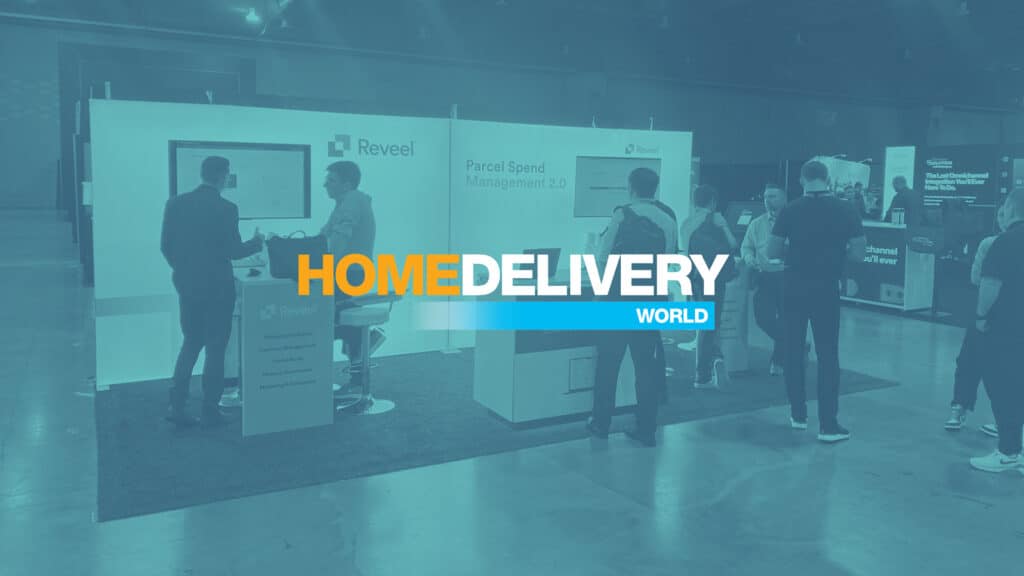Reveel’s Shipping Intelligence™ Platform provided an easy way to vet potential additions to its portfolio, dramatically lower their shipping costs and increase enterprise value with no risk.
With investments in more than 30 portfolio companies extending across a wide range of industries, from defense and manufacturing to retail, the private equity firm has more than two decades of experience and an exceptional record of success. Whether it is helping underperforming businesses realize their full potential or empowering innovative new entrants to achieve aggressive growth plans, its established approach draws on time-tested ideals and practices. These include taking a long-term view, a strong focus on creating real partnerships with portfolio companies’ leadership teams, and an emphasis on applying its extensive experience in business operations.
For the firm’s newest managing director, a veteran business leader who cut his teeth optimizing global supply chains, one business function, and its budget line, remained a vexing challenge even in organizations with strategic, data-driven operations. Even those with highly refined warehouses and distribution centers had little real intelligence on what for many was not only the final, but often the most costly step in fulfillment operations: parcel shipping.
Despite being a significant budget line item in most companies and an impactful operational outlay for any companies that sell online and then must deliver purchases, parcel shipping for the most part remained completely devoid of management, let alone the strategic, data-driven approach modern business intelligence applications have made possible across other business functions.
Operating Blind with no Visibility Over Parcel Shipping or Ability to Manage It
Despite being a significant cost center, parcel shipping was rarely discussed. Nor did usually proactive portfolio company leaders ever ask about it.
“At many organizations, parcel shipping is the last frontier of spend management,” says the managing director. “Yes, companies can hire consultants to analyze carrier contracts and provide negotiation services to secure better shipping prices, terms and conditions, but those efforts are rudimentary at best. Companies historically have had no way to effectively gain visibility over or make sense of the millions of shipments they may make in any given day, and because each shipment is typically unique, parcel shipping is complex and difficult to understand, let alone manage proactively.”
To this point, he stresses that most companies cannot tell you with any certainty how they are performing in their parcel shipping operations, or even know if they are missing overt and obvious mistakes that can lead to significant cost increases.
“I’ve literally seen companies ship entire product lines at a net loss for months because they had no way of knowing that they were being charged additional special handling fees by their carrier because the box they were using was a half inch too large until they found that fact buried in a quarterly invoice,” he adds. “Most companies today don’t even act to get the refunds they are entitled to when the carrier fails to satisfy their service level guarantees, for example when packages arrive late, because they don’t have visibility over their own parcel shipping operations. And that’s to say nothing of managing them in a strategic manner that empowers the business to offer discounted or free shipping in a way that generates additional sales and other top line growth.”
The Status Quo is the Challenge
The managing director’s initial seven portfolio companies offered a representative sampling of the status quo. Five were business-to-business companies selling industrial parts across a wide range of industries. The remaining two businesses were online and catalog retailers of parts serving various markets, among them the custom automotive and marine sectors.
Although some larger items were shipped via freight carriers, the vast majority of purchases made with each of the portfolio companies were delivered to customers via parcel shipments made by FedEx or United Parcel Service (UPS.) Parcel shipping was also a material cost line item for all seven companies.
Regrettably, like most, none of those in the portfolio had any real visibility over their shipping operations, apart from the details they were able to gain from their carrier invoices. Several also had rudimentary details and recommendations from consultants paid to analyze their carrier contracts and provide negotiation support.
“Like most businesses today, the portfolio companies I was asked to oversee really didn’t have any real intelligence on their own parcel shipping operations, let alone insights they could use to create a competitive advantage,” says the managing director. “Nor could they say with any level of certainty where they stood when it comes to what Reveel calls the shipping vital factors – metrics of shipping performance that also serve as levers which can be used to proactively lower costs.”
These shipping vital factors include:
- Service spend: The total amount the business spends on shipping;
- Surcharge spend: The total amount being spent on surcharges – these can be for a variety of factors, among them peak season, parcel dimensions, and fuel;
- Average cost per shipment: This should be derived using the actual costs of shipments, including all zone and weight considerations, as well as surcharges;
- Weight: This includes the average billed weight of parcels, and the percentage of packages billed at their dimensional weight – a measure of length, width and height that carriers are increasingly using;
- Minimums: The percentage of parcels that meet the carriers’ threshold of minimum charges; and
- Average zone: Which zone or zones are being shipped to the most – a key factor when deciding what services to use for particular shipments.
The Solution – A Budget Line is Transformed with Data Science and SaaS.
When the managing director first learned of the Reveel Shipping Intelligence™ platform he was skeptical and opted for the free version of the Software-as-a-Service (SaaS) offering.
“Deploying a SaaS platform requires no CapEx investment, so I knew turning on Reveel only amounted to the time I would spend reaching out to executives at the portfolio companies and asking them to let Reveel quickly tap into their shipping data with a simple API,” he says. “Honestly, I didn’t have lofty expectations, but I quickly discovered that Reveel found cost savings that almost immediately exceeded those delivered by the expensive parcel contract analysis and negotiation consultants several of the firms engaged. Deploying the paid version made sense and we’ve never looked back.”
Although the analysis each of the companies’ parcel shipping operations – an analysis that advanced data science in Reveel’s platform makes possible in the industry for the first time –differed from one firm to the next, several common sources of savings and increased EBITDA emerged. These included:
- Surcharges that expire before the end of the contract or which could easily be avoided;
- Situations in which packages unknowingly exceeded oversize thresholds – a reality that in some cases led to products being sold at a loss;
- Technical errors, including incorrect address fields that led to additional carrier fees; and
- Using the wrong carrier product to shift to commonly shipped to zones in which a less expensive alternative – for example choosing ground shipping versus air express – was sufficient to meet customer expectations and service level guarantees.
Initial gains exceed $3 million in increased EBITDA and an estimated $24 million jump in enterprise value.
Notably, the platform delivers actionable insights in real-time that enable shippers to immediately save money. In the first quarter of using Reveel’s Shipping Intelligence™ platform the seven portfolio companies used the insights it delivered to easily save $3,185,313 with no risk and no CapEx investment. Not surprisingly, EBITDA also increased as shipping costs were proactively decreased and used to help generate additional sales. Across the portfolio of seven companies enterprise value increased by $24 million.
It is so easy to use that the managing director also uses the Reveel platform when vetting new companies for investment or acquisition.
“When I see a company that’s paying far more for parcel shipping or that is losing a lot of potential revenue because its approach to fulfillment isn’t strategic and can be easily improved, I know we can immediately and quickly drive bottom line and top line gains with Reveel’s Shipping Intelligence™ platform,” he says. “With Reveel, the days of parcel shipping being an invisible, uncontrollable budget line item are over.”
For more information on the Reveel Shipping Intelligence platform contact Bill Taylor, CMO of Reveel, at:
Bill Taylor
Chief Marketing Officer
(760) 208-7939
Bill@reveelgroup.com
Reveel is the leading Shipping Intelligence™ Platform that enables companies to level the playing field with FedEx and UPS. With over 15 years of parcel agreement management expertise and $200M+ in savings for our clients, we provide actionable insights to make smarter business decisions and give you peace of mind. Leverage the power of data science to capture significant ROI and improve your competitive advantage.
Sign up for a free Reveel account today to see how you can leverage automation to synthesize your data, ship more for less, and reduce the time needed to identify issues and action items.





